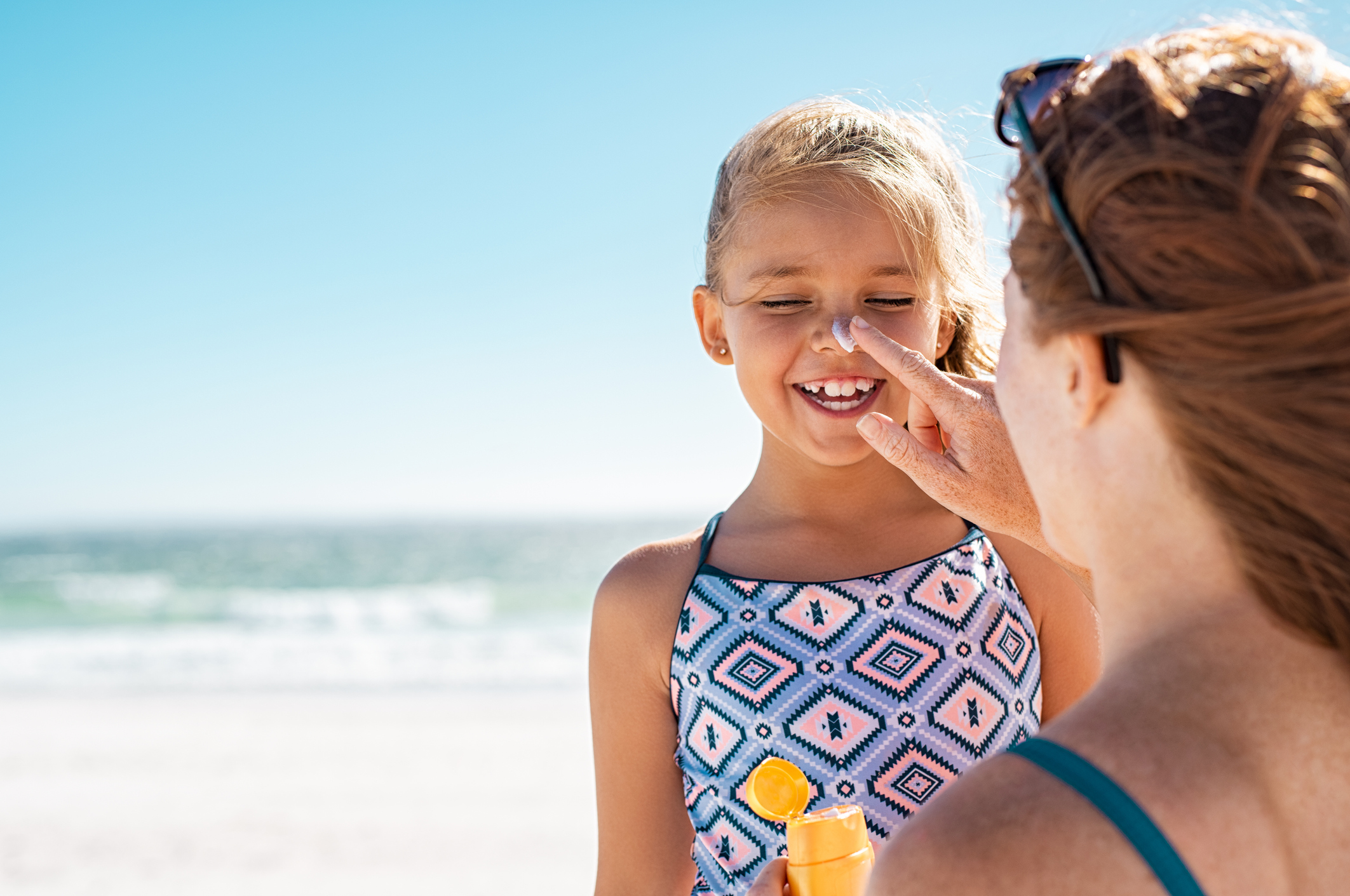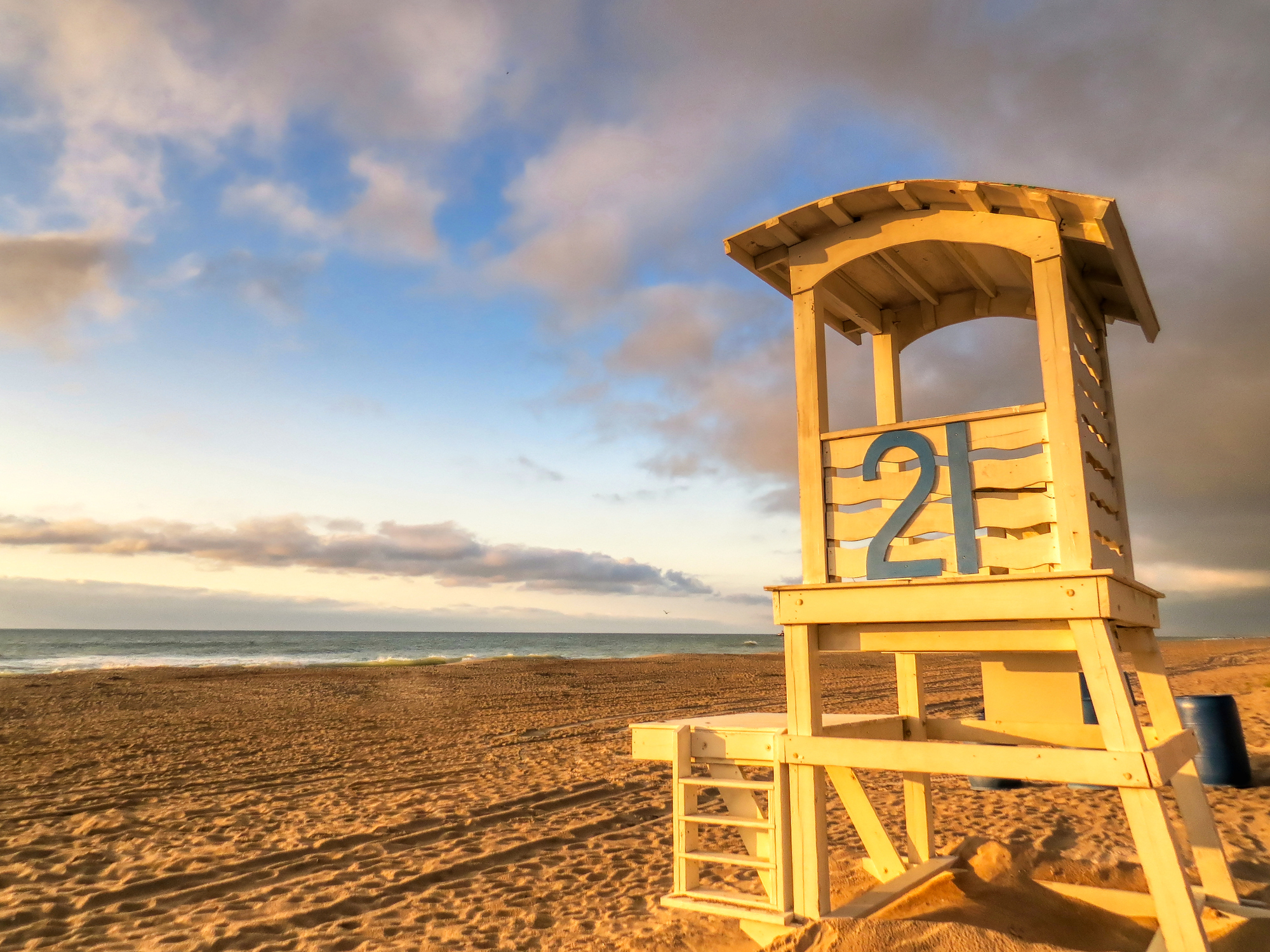Our North Carolina Beaches are some of the bests in the country. The bright blue water and soft sandy beaches bring people back year after year. No matter how great the beach is, there are risks. We want you to stay safe during your next beach vacation.
Beach Safety

Each public beach has its own rules and regulations. You can find them posted at each beach access point or online on each town's website. Whether you plan on staying in Wrightsville Beach, Carolina Beach or Kure Beach, you will not find a better beach than the ones we have in North Carolina.
Pets
Each town has its own rules when it comes to dogs on the beaches.
- In Kure Beach, dogs are prohibited from being on the beach strand from April 1st through September 30th. Outside of that timeframe, dogs are permitted on the beach if they are leashed.
- In Carolina Beach, Dogs are permitted on the beach if they are on a leash, and you have a plastic bag to pick up and contain your dog's waste. From April 1st to September 30th, dogs are only permitted on the beach before 9 am and after 5 pm.
- In Wrightsville Beach, dogs are not permitted on the beach from April 1st through September 30th. From October 1st to March 31st, dogs are allowed on the beach if they are on a leash, and you clean up after your pet. Any violation of these regulations may result in a $250 fine for the first offense.
Leave No Trace
One way to keep our North Carolina Beaches clean is to leave no trace after you visit them. Dispose of waste properly. Our Carolina Coast Beaches have garbage and recycling carts at each beach access. They are clearly marked for what can and cannot be recycled.
Another way to make sure our beaches are beautiful and safe is not to leave your beach equipment on the beach overnight. Any equipment that is left overnight will be considered abandoned and removed from the beach. This can also lead to a $40 fine.
Lastly, be sure you fill in any holes you or your family make in the sand. Leaving holes unfilled at the end of the day can be extremely dangerous. People walking on the beach at night can hurt themselves if they do not see the hole. This is also dangerous when it’s Sea Turtle Hatching season. Baby sea turtles can fall into these holes and not get out and make it to the water.
Sun Safety

The North Carolina sun can be intense during the summer months. It is important to protect yourself and your loved ones while playing in the sun. Sunscreen is an important piece of the puzzle when shielding yourself from the sun's rays. Sunscreen should be applied about 30 minutes before sun exposure and should be reapplied every few hours or after getting wet. Children should have sunscreen reapplied more frequently.
Hydration is also a huge component in battling the sunshine. Water can help your body feel cool and keep you hydrated. Even if you don’t feel thirsty, you should still be drinking water.
Also, be aware of heat stroke. Heat stroke’s symptoms include hot, red, and dry skin, changes in consciousness, a rapid, weak pulse, and rapid, shallow breathing. If you notice signs of heat stroke in someone, call 9-1-1. While waiting for emergency services, lay the victim down and try to cool their body down. You can use ice packs, cold packs, or cold wet towels on the victims' wrists, ankles, armpits, and necks to help try and cool them down.
Ocean Safety

If you are not a strong swimmer, know your limits when you are swimming in the ocean. If you are nervous about swimming, be sure not to go too deep into the water, never swim alone, and be sure to stay near the lifeguard stations.
Lifeguards
Each of the public beaches in Wilmington Beach, Carolina Beach, and Kure Beach have lifeguards present beginning Memorial Day through Labor Day. Lifeguards are on duty from 10 am to 5 pm daily across Wilmington and Pleasure Island. In Carolina Beach, the lifeguard's on-duty hours are from 10 am to 7 pm on the weekends. Each town has its own Ocean Rescue team that is fully trained and staffed to handle the safety of citizens and visitors. Your safety is important to us. That is why we donated $500 to the Wrightsville Beach Lifeguard Scholarship Fund to make sure our beaches are protected during the summer season. We give more to our community because we want it to stay beautiful and safe for years to come.
Flag Warning System
To keep everyone safe, Wrightsville Beach, Carolina Beach, and Kure Beach all have a flag warning system in place to alert beachgoers to the current water conditions.
Common Warning Flags
- Green Flag – Low Hazard - Water Conditions are calm
- Yellow Flag – Medium Hazard – Use Caution while swimming. Choppy-Rough surf Conditions
- Red Flag – High Hazard – Hazardous water conditions. All swimmers are discouraged from entering the water.
- Double Red Flag – Closed Beach – Water conditions are not safe therefore closed to public use
Rip Current Safety
Despite having the flag warning system in place, rip currents can form suddenly, and other dangerous conditions could exist. Getting caught in a rip current is a scary thing. It’s important to know how to identify a rip current and how to escape one if you get caught up in one.
Identifying a Rip Current
One of the best and easiest ways to identify a rip current is to look for gaps in between the waves. It’s a small patch of calm water surrounded by waves. Another way to identify a rip current is to look along the shoreline. A rip current, especially a dangerous one, tends to drag large amounts of sand and sediment away from the beach and out to sea leaving the water at the shoreline discolored.
Rip Currents commonly occur in areas near sand bars, piers, pilings, and jetties. If you are swimming near any of these hot spots, exercise extreme caution and awareness.
Escaping a Rip Current
If you get caught in a rip current, it’s important to stay calm. If you fight the current, it will exhaust you and make it harder to escape. There are two ways to escape. First is to swim parallel to the shoreline until you are free from the current then you can swim diagonally towards the shore away from the current. The Second way to escape is to float or tread water and wait for the current to weaken. When it weakens you can then swim at an angle from the current to the shore. If you are unable to reach the shore, draw attention to yourself by facing the shore and waving for help.
If you are on the shore and you notice someone is caught up in a Rip Current, call 9-1-1 for assistance then seek help from a lifeguard. If there isn’t a lifeguard around, you can help the person caught up in the current by yelling instructions on how to escape or throwing them something that floats.
Start Planning your Carolina Coast Beach Vacation
Going to the beach is one of the summer's most popular attractions. It is important to know how to protect yourself and the environment around you when you head to the beach. We want you to be safe during your stay in one of our Wilmington-area vacation rentals. We all know, one bad sunburn or experience can ruin the vacation for everyone.
